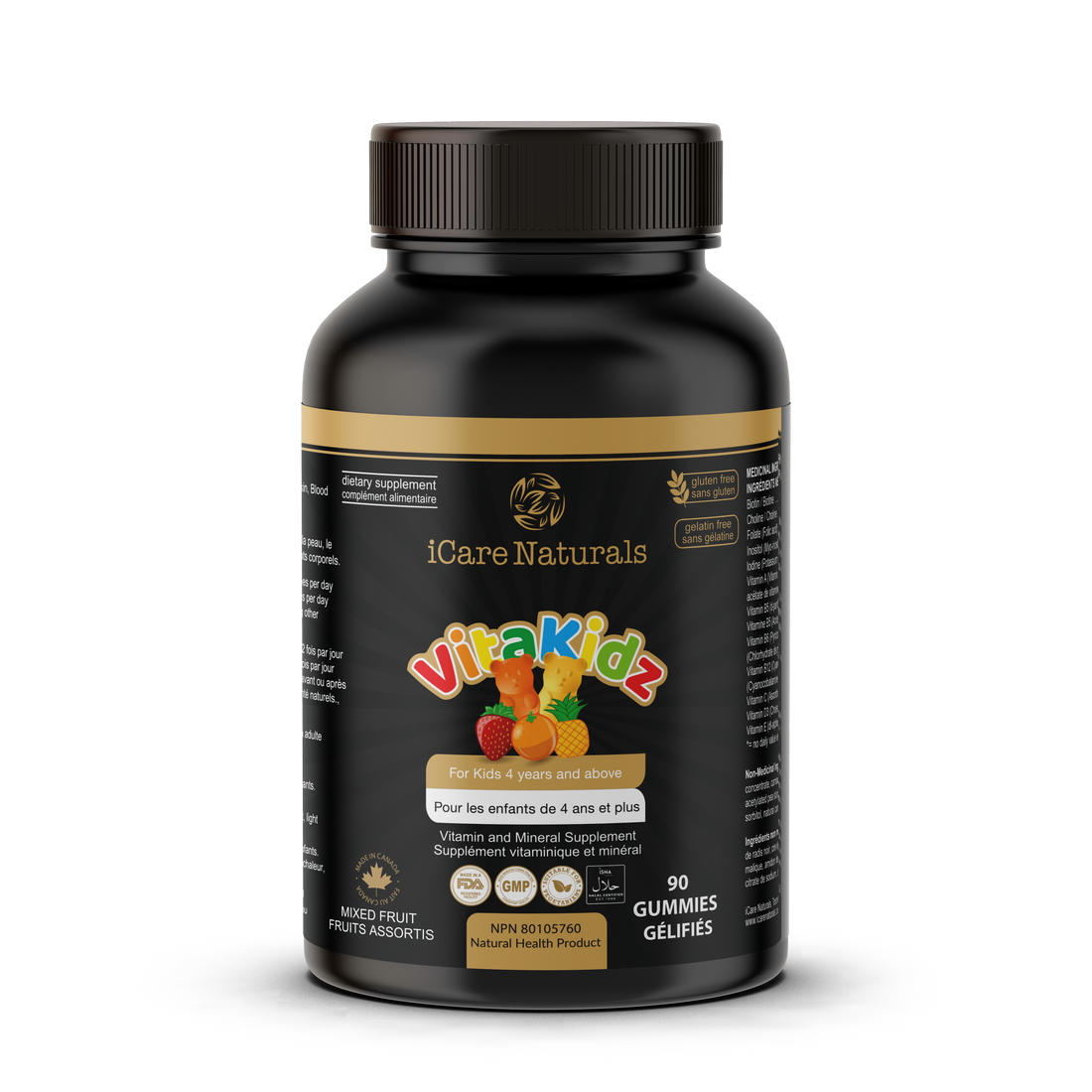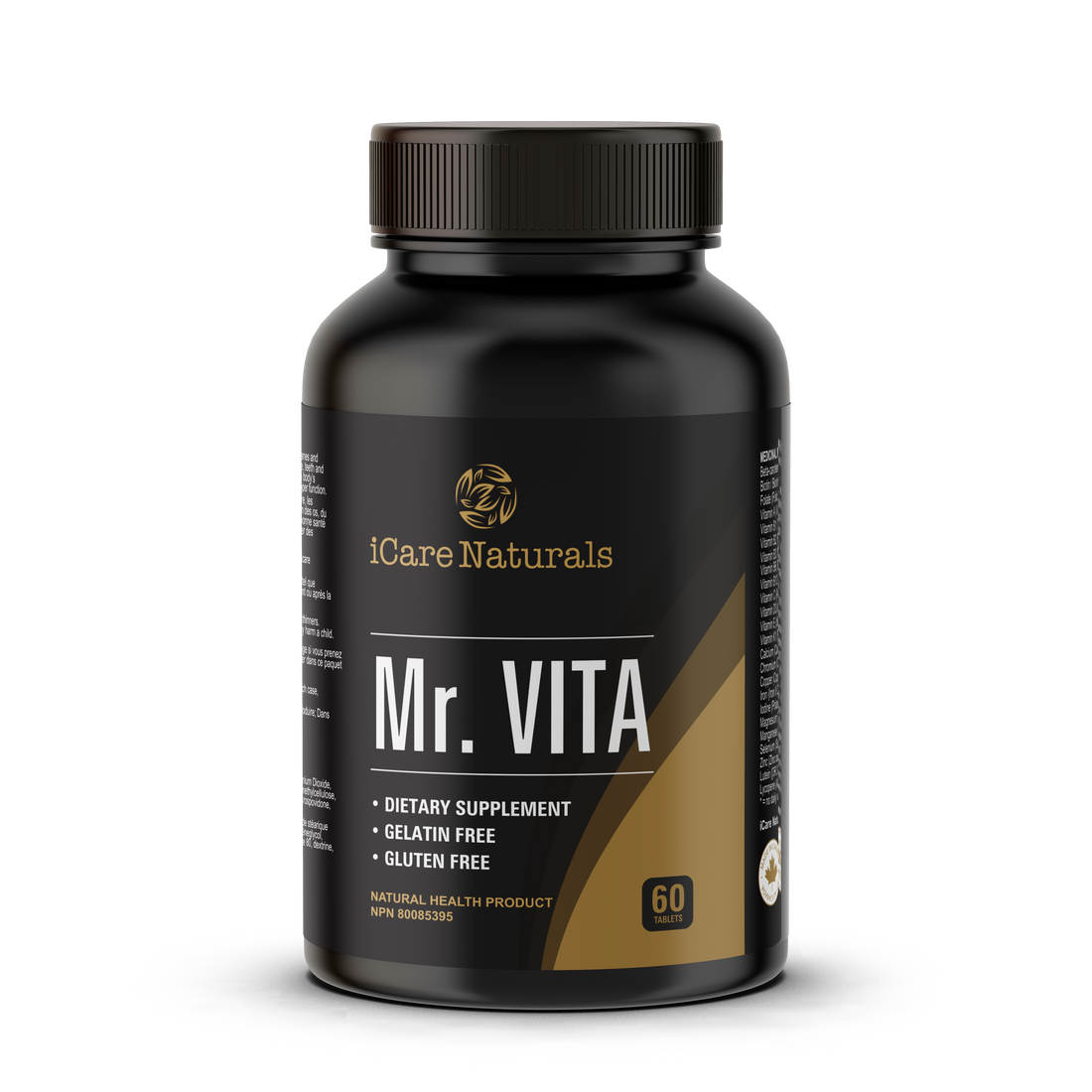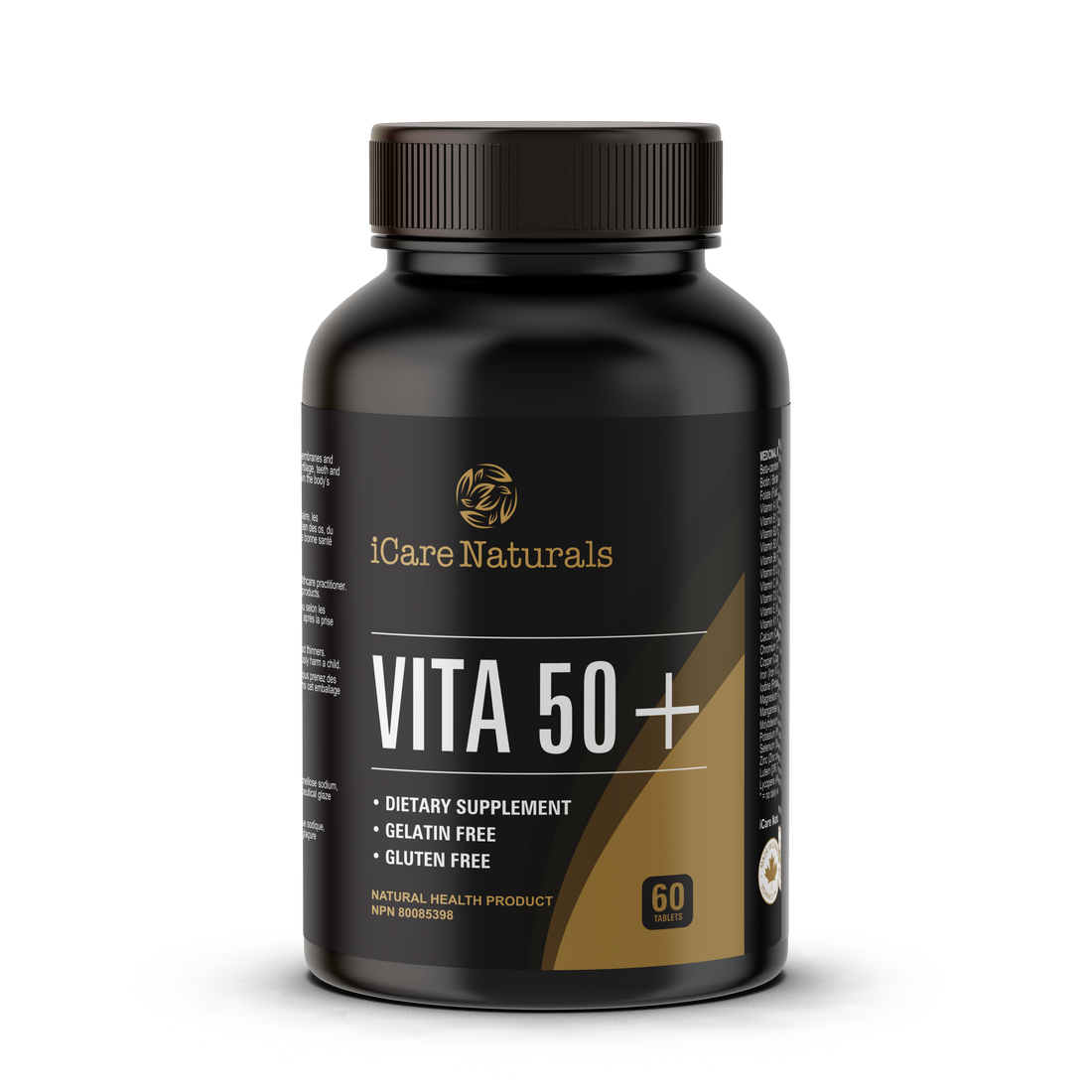It’s easy to think that with longer, sunnier summer days, you're getting all the vitamin D and calcium your body needs. For a lot of us, especially in places like Canada with long winters, summer feels like a chance to catch up on sunshine.
This leads many people to believe it's completely fine to put their supplements away until the cold weather returns.
The reality, however, is that this can be a dangerous misconception. Your body’s nutritional needs don't simply disappear in the summer. It’s often only when people start noticing symptoms like aching joints or bone-cracking sounds that they finally pull those supplement bottles off the shelf again.
The truth is, your need for vitamin D and calcium doesn't take a summer vacation. And that's why we’re here to clear up this basic confusion and share everything you need to know.
Common Misconception About Not Taking Vitamin D and Calcium Tablets in Summer
Many people believe that supplements are unnecessary during the summer season. They are naive to think that summer sunshine provides everything their body needs, especially all the vitamin D and calcium they need. This is mainly because summer days are longer in countries like Canada. People look forward to the sun. They stop taking their supplements once the summer season arrives.
These individuals believe that vitamin D production depends solely on exposure to sunlight. Therefore, many assume outdoor activity is enough. They think they can maintain sufficient levels of vitamin D by spending time outdoors. And this is precisely why many people stop taking supplements. This assumption, however, overlooks vital facts that summer sun alone is not always enough to produce vitamin D in the body and to keep bones stronger.
The reality is that vitamin D and calcium work together, and if you call them a team, then this is not wrong. Vitamin D boosts calcium absorption. Moreover, calcium is essential for maintaining healthy bones and keeping them strong. It is also necessary for many bodily processes.
You can get calcium from foods. Vitamin D is not common in food. However, sun exposure or taking vitamin D supplements is essential. Summer sunshine does not guarantee optimal levels of vitamin D, and it also does not fully address calcium needs. Therefore, these two nutrients must ultimately work together to achieve the best results.
The Reality of Summer Vitamin D and Calcium Deficiency
Summer vitamin D deficiency is becoming increasingly common in individuals who often ignore or are unaware of it. We understand that this widely held belief is incorrect. Research reveals surprising results, indicating that a quarter of the population remains at risk of calcium and vitamin D deficiency. Summer helps slightly to increase these low levels, but again, it is not a complete solution.
Moreover, vitamin D levels vary widely among individuals, as they depend on many factors. Some of these factors include the way you live your life, your age, and your skin colour. Geography is also a factor in keeping these levels in a better state.
Furthermore, office workers spend most of their time indoors. Hence, sadly, they miss daylight hours and may have lower vitamin D levels. Without enough vitamin D, calcium absorption is weak, which can lead to weaker bones. Over time, it can also cause bone fractures.
Calcium is more easily obtained from food. Yet, many people fall short. Therefore, the best approach is to get calcium from supplements. Other than that, it is also vital to have enough vitamin D. Taking calcium without it is not effective, as these two nutrients must be well-balanced in your body, and they ensure strong bones.
If you have better levels of vitamin D, it is likely to increase the efficiency of calcium absorption. If your vitamin D levels are low, you may absorb only 10% to 15% of dietary calcium. However, if you are sufficient in maintaining your vitamin D, your intestinal calcium absorption increases to 30% to 40%.
Who’s at Risk During Summer Months?
Certain groups of individuals are at a higher risk of calcium or vitamin D deficiency. Even with all the glamorous sunlight, their lifestyle or body can prevent the absorption due to a variety of reasons. Some of the causes include:
1. Indoor Employees
These indoor workers spend most of their time in the office, which limits their exposure to UVB. They miss out on the sun's benefits and often do not take vitamin D or calcium supplements. This can lead to having weaker bones or even fractures.
2. Older adults
Older individuals are at a higher risk during the summer season. Their body naturally absorbs less calcium. This is why they need supplements to help maintain optimal vitamin D and calcium levels in their body.
3. Individuals in Colder Areas
We all know that the sun is not as strong there, and this holds true for summer days as well. UVB radiation is limited; therefore, these individuals must include foods rich in vitamin D and calcium in their diet. They must also obtain supplements from reputable Canadian brands, such as iCare Naturals.
4. Diet-restricted individuals
Some individuals may avoid dairy for various reasons, one of which is lactose intolerance. This can make getting calcium difficult. Therefore, these individuals can always consult their healthcare practitioners, who will guide them in getting their calcium levels back on track.
How Much Calcium and Vitamin D Does Your Body Need?
According to research, it is recommended that women aged 50 or below require 1,000 mg of calcium daily, while women above 50 need 1,200 mg of calcium. However, men over 70 years old require 1,000 mg of calcium daily, while those above this age need 1,200 mg of calcium.
For Vitamin D, individuals below 50 years of age need 400-800 international units (IU). Once you reach 50 years of age or above, you will need 800-1,000 IU of vitamin D daily.
Practical Steps to Optimise Calcium and Vitamin D Levels
Here are some easy steps to follow that will help you optimise calcium and vitamin D levels. By following these steps, you can maintain a healthy lifestyle and strengthen your bones.
1. Include Nutrient-Rich Foods
Eat foods with calcium. Try milk, cheese, and kale. You should also try eating foods rich in vitamin D, such as fatty fish and dairy products, which are good sources of this essential nutrient.
2. Take Supplements When Needed
Consider taking supplements if you don't get enough sunlight. Take them if your diet is lacking in these nutrients. You can follow Canadian guidelines for dosage, or consult your health professional. You need to take calcium and vitamin D together, as they work best when used in combination.
3. Monitor Levels Regularly
Have a doctor check your levels. A blood test can reveal your status, which is particularly important for individuals at high risk of developing the condition.
4. Maintain Supplementation Year-Round
Don't stop taking supplements, especially in the summer season, thinking that the sun will do its part and help you maintain high vitamin D. The truth is that your body needs calcium and vitamin D throughout the entire year.
Conclusion
The belief that summer is enough to keep your calcium + vitamin D is wrong. You will need these tablets even during the beachy season. Moreover, you must remember that calcium alone is not sufficient, and you will need vitamin D for absorption. They are both essential for strong bones.
At iCare Naturals, having a balanced approach is best. For that, you are required to have sensible sun exposure and eat a nutrient-rich diet. Use the supplement dose as needed, especially after consulting your healthcare professional. This strategy helps prevent many problems and can also help prevent osteoporosis and fractures in the long run, supporting healthy ageing










